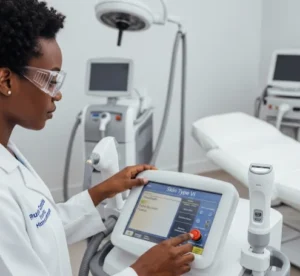Overview
Epilepsy is a neurological condition characterized by recurrent, unprovoked seizures caused by abnormal electrical activity in the brain. In South Korea, epilepsy affects tens of thousands of people, with both pediatric and adult cases widely recognized and treated. While epilepsy is manageable, it often comes with social stigma and challenges in education, employment, and daily living.
What is Seizures (Epilepsy)?
Epilepsy is a chronic brain disorder marked by the tendency to have recurrent seizures—sudden bursts of electrical activity in the brain that can affect behavior, movements, feelings, or consciousness. A person is typically diagnosed with epilepsy after having two or more unprovoked seizures at least 24 hours apart.
There are various types of seizures, including:
- Focal (partial) seizures – affecting one area of the brain
- Generalized seizures – affecting both hemispheres
- Absence seizures – brief lapses in awareness
- Tonic-clonic seizures – loss of consciousness with convulsions
Symptoms
Seizure symptoms can vary depending on the type and severity:
- Uncontrollable shaking or convulsions
- Temporary confusion or blank staring
- Sudden collapse or loss of awareness
- Muscle rigidity or twitching
- Strange sensations, smells, or emotions
- Lip-smacking or repetitive movements
Some seizures are barely noticeable, while others may be intense and dangerous.
Causes
Epilepsy can be caused by many underlying conditions, including:
- Genetic predisposition
- Brain injury or trauma
- Stroke
- Brain infections like meningitis or encephalitis
- Brain tumors or cysts
- Prenatal injury or birth complications
- Neurodevelopmental disorders like autism
In many cases, especially in children, no specific cause is identified (idiopathic epilepsy).
Risk Factors
Certain factors increase the likelihood of developing epilepsy:
- Family history of epilepsy
- Head trauma
- Brain infections
- Dementia (in older adults)
- History of febrile seizures in childhood
- Stroke or cardiovascular issues
- Abnormal brain structure or birth defects
Complications
Without proper management, epilepsy can lead to:
- Physical injuries during seizures (falls, burns, drowning)
- Status epilepticus (prolonged seizures causing brain damage)
- Sudden unexpected death in epilepsy (SUDEP)
- Learning difficulties in children
- Social isolation or depression
- Restrictions in driving, employment, or daily life
Prevention
While not all epilepsy cases can be prevented, some strategies may help reduce risk:
- Managing chronic conditions like hypertension and infections
- Wearing helmets or seat belts to avoid head injuries
- Prenatal care to reduce birth complications
- Avoiding alcohol and drug abuse
- Prompt treatment of brain infections
Treatment Options in Korea
South Korea offers high-quality and accessible epilepsy care through advanced neurology departments, epilepsy centers, and government-supported programs.
1. Medication
- Anti-epileptic drugs (AEDs) like carbamazepine, valproate, lamotrigine, and levetiracetam
- Medications are prescribed based on seizure type and individual response
- Monitored through blood levels and side effect management
2. Surgical Options
- Epilepsy surgery (e.g., temporal lobectomy, corpus callosotomy) for drug-resistant epilepsy
- Pre-surgical evaluation includes EEG, MRI, and video monitoring
- Available at top-tier hospitals
3. Vagus Nerve Stimulation (VNS)
- Implantable device that sends electrical pulses to the brain
- Used in cases where surgery isn’t suitable or seizures persist despite medications
4. Ketogenic Diet
- High-fat, low-carb diet used especially for children with difficult-to-control epilepsy
- Monitored by pediatric neurologists and dietitians
5. Emergency Seizure Management
- Hospitals provide urgent care for seizure episodes, including intravenous AEDs
- Education for caregivers on first-aid response during seizures
6. Supportive Services
- Epilepsy Foundation Korea (한국뇌전증협회) offers education and patient advocacy
- Mental health counseling and support for families
- Disability registration and financial aid for treatment













